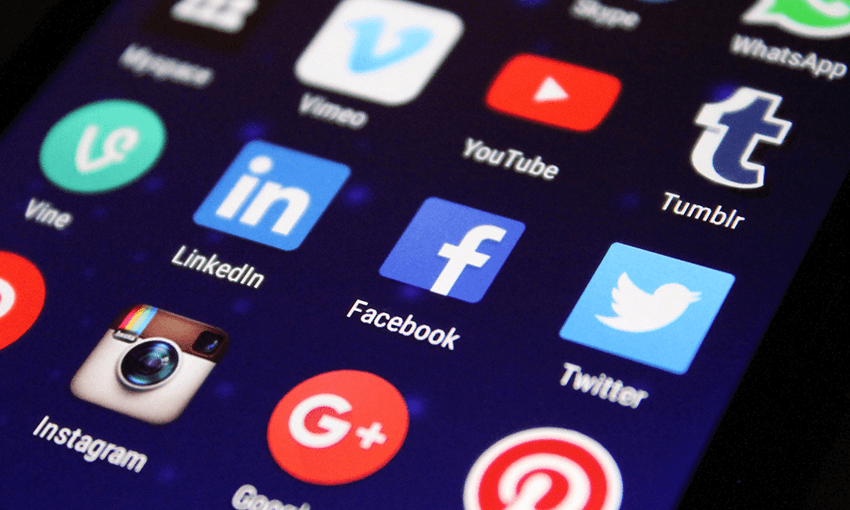A coalition of major New Zealand advertisers is building a coalition to demand change from the tech giants.
New Zealand’s biggest advertisers are working both individually and collectively to try and force change from the tech giants in the wake of the Christchurch terror attacks. At midday on Monday the Association of New Zealand Advertisers (ANZA) and the Commercial Communications Council (CCC) issued a joint statement calling for urgent change to the technology that allowed the Christchurch gunman to livestream his actions for 17 minutes on Friday.
Since then this sentiment has coalesced towards forcing the tech giants to reckon with the consequences of what their platforms allow. Conversations with multiple leaders in communications and marketing across brands and ad agencies suggest that once positions are formalised the next step will be to try and gather international support from a group of major advertisers.
The CCC’s Paul Head, who represents advertising agencies, says “Saturday was about sitting in tears. Sunday was about ‘what can we do?’” This became conversations, facilitated by his organisation and ANZA, amongst some of the biggest marketing spenders in New Zealand. “This is a moral question,” says Lindsay Mouat, whose ANZA represents major corporate advertisers, “because we essentially fund Facebook.”
Already a number of advertisers, including Vodafone and Westpac, have paused all spending on Facebook. Some smaller businesses are going further, with Freedom Farms announcing it was quitting the platform entirely.
On Monday the sense of anger snowballed into what Mouat describes as a “moral groundswell”. They penned the release, sought board approval and had it issued by lunchtime. “The critical issue is how they’re operating Facebook Live,” says Spark’s Andrew Pirie. “They’ve taken down hundreds of posts, which is a good thing. But this started with a 17 minute Facebook Live video.”
None of Facebook, Google or YouTube were willing to make anyone available to speak by our deadline for this story, though Facebook has issued this statement, which makes no reference to any changes to the livestreaming product.
Corporate and advertising communities believe the tech giants are putting far more resource into targeted advertising than they are into creating safe environments. “Helen Clark is 100% correct in asserting that if the global social media platform companies put as much effort into algorithms for preventing of the spread of hate material as they put into targeted advertising, they could easily solve the problem,” Spark CEO Simon Moutter tweeted on Saturday.
The push is perhaps most urgent amongst the telcos, all of whom were extremely active on Friday, pulling down sites like 4chan which were hosting the video and manifesto and on which the terrorist had been active. Earlier today the leaders of Spark, Vodafone and 2 Degrees send a letter to Facebook, Google and Twitter demanding immediate changes to video distribution and livestreaming on their platforms.
“Although we recognise the speed with which social network companies sought to remove Friday’s video once they were made aware of it, this was still a response to material that was rapidly spreading globally and should never have been made available online,” the letter reads. “We believe society has the right to expect companies such as yours to take more responsibility for the content on their platforms.”
This sentiment was echoed by Jacinda Ardern in her address to parliament today. “We cannot simply sit back and accept that these platforms just exist and that what is said on them is not the responsibility of the place where they are published,” she said. “They are the publisher not just the postman. They cannot have the profits without the responsibility.”
Profits are what the corporate advertising world is using as leverage in its attempt to swiftly initiate a substantive dialogue with the platforms. Large corporate entities were able to effect change on YouTube earlier this year when the video service banned comments on videos deemed vulnerable to exploitation by paedophiles. New Zealand’s corporate sector is hopeful that the prospect of a similar escalation will prompt the platforms to change.
At this stage the attempt is urgent but civil, and all parties acknowledge that the platforms are not uncomplicated entities. “Good things happen on social media,” says Mouat, citing the climate change protests from earlier in the day as evidence of that. “Much as Facebook was used to share the video on Friday, it was also used to organise the vigils,” says Vodafone’s Richard Llewellyn.
But there is a determination that the outcome of this has to be different from that of other crises, which have mostly failed to lead to substantive change from the tech giants.
“The time for mealy-mouthed corporate platitudes and PR statements is over,” says Head. “We just need some action.”
